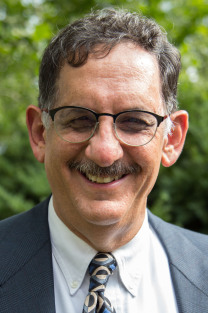AMES, Iowa – There is a reason it may seem as if every television ad right now is a political one. Millions of dollars are spent to reach voters through this one medium, but does it pay off on Election Day?
According to a new Iowa State University study of political advertising for the 2016 Iowa caucuses, the candidates who spent more on TV ads generally received more support on caucus night. However, this does not suggest a candidate can buy an election, said Jay Newell, an associate professor of advertising in the Greenlee School of Journalism and Communication. While the $46.3 million spent on TV ads in Iowa influenced which candidates were considered by caucus-goers, he says there is no evidence to suggest overspending was rewarded.
“We think political advertising is all-powerful, but it’s not,” Newell said. “Candidates who buy the most ads tend to get the most votes, but that could be drawing conclusions from coincidence. Those leading in the polls get more resources. So the additional advertising being purchased is essentially insurance and not as much to move the meter.”
That is why Newell says it is unlikely the research will change how much campaigns spend on ads for the midterms or future elections. Given the high stakes, Newell says there is minimal risk of burnout as voters are still going to go to the polls. Commercial advertisers know reaching every viewer in a media market is not practical or cost effective, but political campaigns have nothing to lose.
“For the political campaigns it’s essentially a winner-take-all situation. They only have one night to make it work. Advertising in Iowa is not that expensive as compared to coastal markets, so the candidates continued spending money until there were literally no more ads to buy,” Newell said.
Ads fail to motivate potential voters
The Iowa caucuses provided a natural experiment to see the effects of different advertising levels on political engagement, candidate preference and final outcomes, Newell said. With help from a team of journalism students, Newell collected thousands of TV advertising contracts uploaded to a Federal Communications Commission database for the nine months leading up to the Iowa caucuses. He also used responses from two waves of surveys among Iowa voters and Associated Press election results to analyze spending and outcomes. The research is published in the Journal of Political Marketing.
Spending was considerably higher in Des Moines and Cedar Rapids than in TV markets near the Iowa border. In Des Moines alone, candidates spent $20 million (see sidebar for comparison). Newell, who studies advertising saturation, says political ads were so dominant in these larger markets that other advertisers could not buy time.
The study found additional advertising made no difference in engagement or interest among voters. However, there was a shift in candidate preference in markets with extensive advertising.
“Advertising helps shift allegiances or helps people who were already going to buy a product to consider a competing brand, but as we saw with the caucuses, advertising typically cannot get people to try a product they don’t want,” Newell said.
Money does not guarantee victory
Spending for both parties illustrates why Newell says candidates should buy ads with the understanding they cannot buy the election. On the Republican side, Jeb Bush’s campaign spent $9,156,679 – just behind top-spender Marco Rubio at $9,250,149 – and garnered less than 3 percent of the vote. Rubio fared better with a third place finish, but he spent considerably more than Ted Cruz and Donald Trump, the top two vote-getters, combined.
On the Democratic side, Hillary Clinton spent $2.3 million more than Bernie Sanders, but only narrowly defeated Sanders, 49.9 percent to 49.6 percent.
“Advertising effects, even when candidates are shoveling in as much advertising as possible, are still fairly mild,” Newell said. “Commercial advertisers have known this for decades. There’s just not enough advertising in the world to buy market share.”
